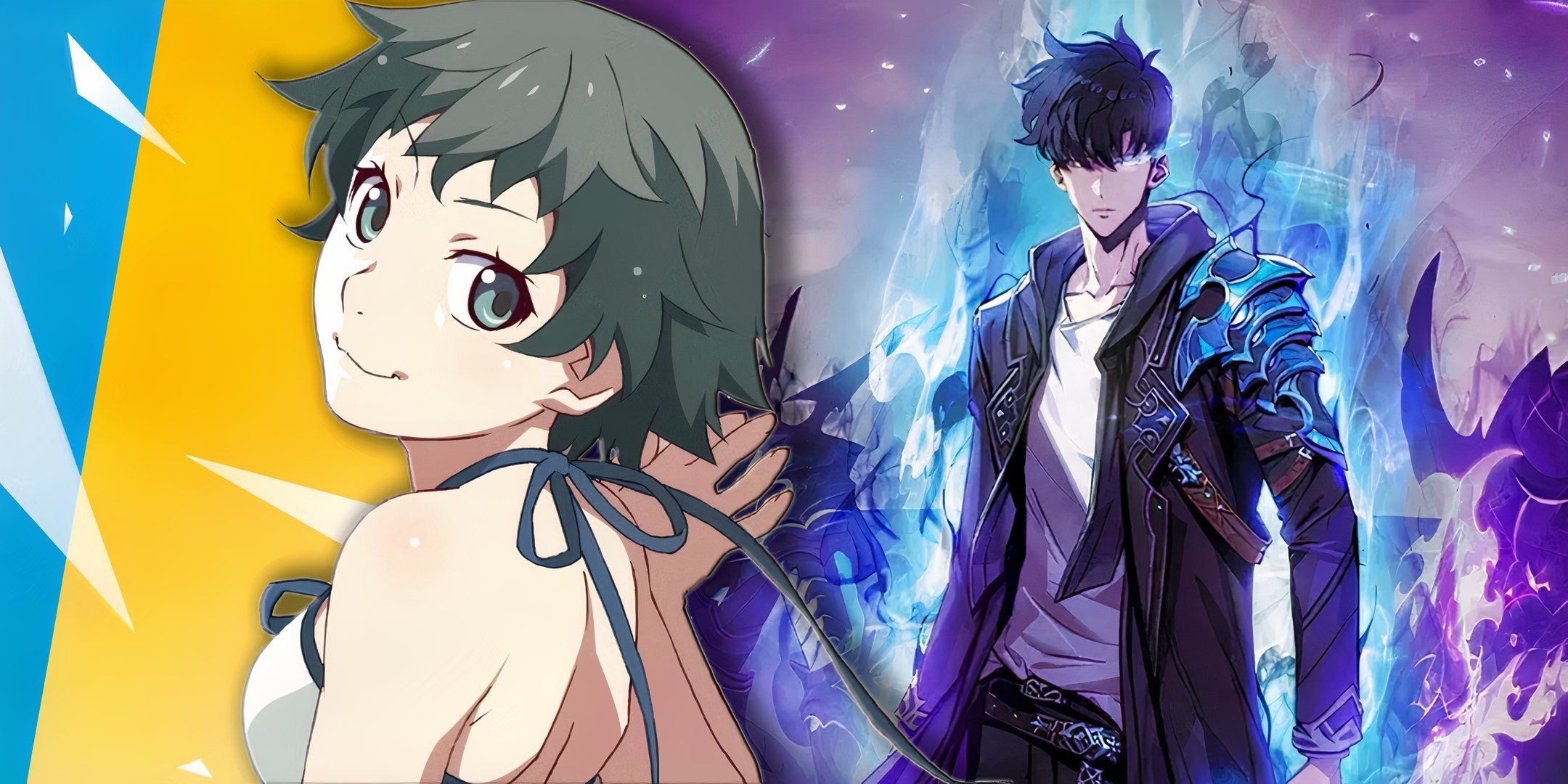
Over the past twenty years, we’ve seen a huge increase in anime being adapted from light novels. Before the 2000s, these adaptations were rare, but now it feels like many new anime series each season are based on light novels or web novels, rather than manga or being completely original. However, anime based on light novels have been very hit-or-miss, giving us some truly great shows alongside some of the worst.
A common problem with anime adaptations of light novels is that they frequently suffer from similar flaws. These include uneven pacing, weak animation, and relying too much on static images. This happens even with highly anticipated series based on popular light novels, like *The Angle Next Door Spoils Me Rotten* and *So I’m A Spider, So What?*, which both received anime adaptations that were ultimately disappointing.
Light Novels Have Historically Struggled With Anime Adaptations
Adapting a light novel into animation shares the same challenges that all book adaptations face: translating words into visuals is surprisingly difficult. Books are built on description and inner thought, which don’t automatically work on screen. Scenes that read well in a novel often feel awkward or poorly paced when turned into a script. Dialogue can sound unnatural without the surrounding narration, and important details from the book can be hard to show without clunky voice-overs.
Anime frequently suffers from issues like this, even when not adapted from light novels. A common complaint with action-focused anime, especially those based on manga, is excessive narration during fights. While a single thought bubble in a manga panel can effectively convey a character’s internal state without disrupting the flow, the anime adaptation often feels clunky. What might be a quick moment in the manga becomes a lengthy voice-over, usually accompanied by a static close-up of the character’s face and distracting visual effects, ultimately breaking the viewer’s immersion.
I’ve noticed a common problem with anime adapted from light novels. It seems like there are usually several reasons why these adaptations fall short. A lot of light novels rely heavily on characters just talking, and when you translate that directly to animation, it can be really slow and uninteresting to watch. It’s often made worse by limited budgets – sometimes scenes just become static images that last for ages. This budget issue also impacts action scenes, frequently resulting in choppy editing, awkward cuts, or just generally poor animation quality.
Ultimately, the quality of anime adaptations depends on a variety of factors that *can* be addressed. For instance, *Mushoku Tensei* benefits from a large budget, allowing for beautiful artwork and fluid animation, even in calmer moments. *Vinland Saga* Season 2 was similarly polished, delivering some of the most impressive action sequences of the past year. However, both series relied heavily on financial resources to achieve this level of quality, which isn’t always a realistic option for many studios.
Monogatari Could Hold the Answer to the Light Novel Conundrum
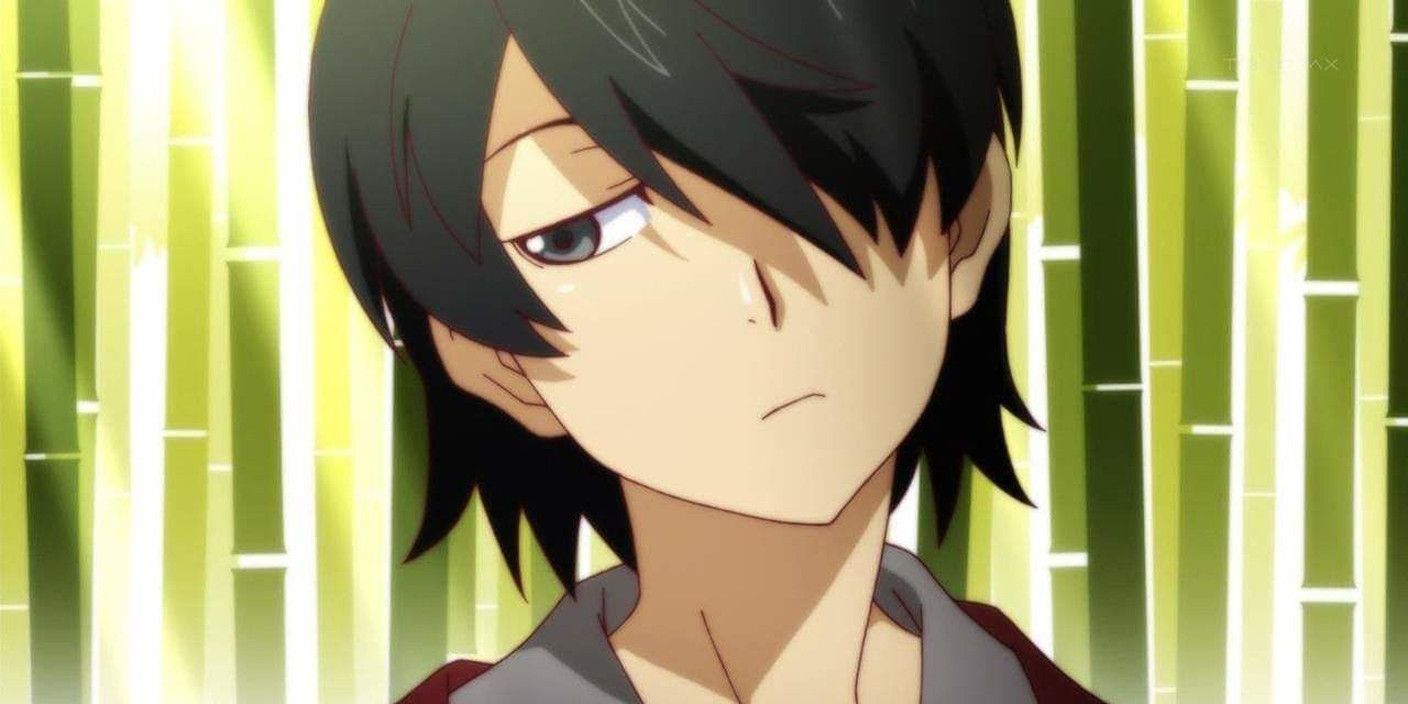
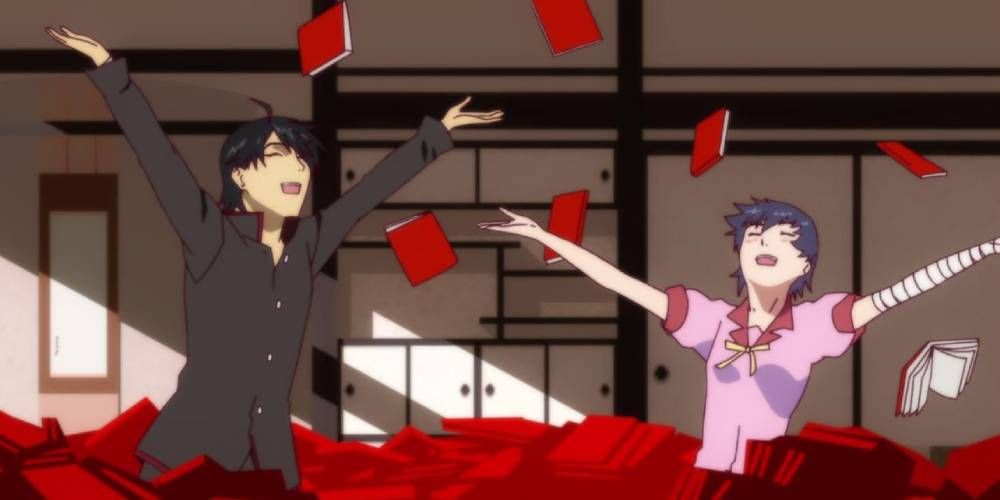
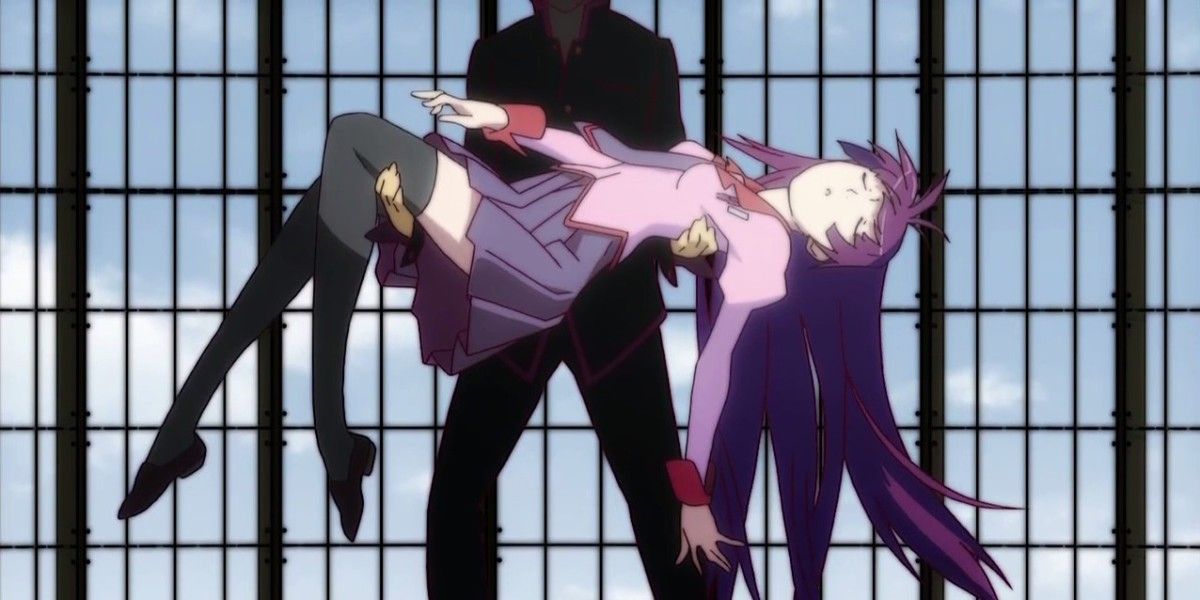
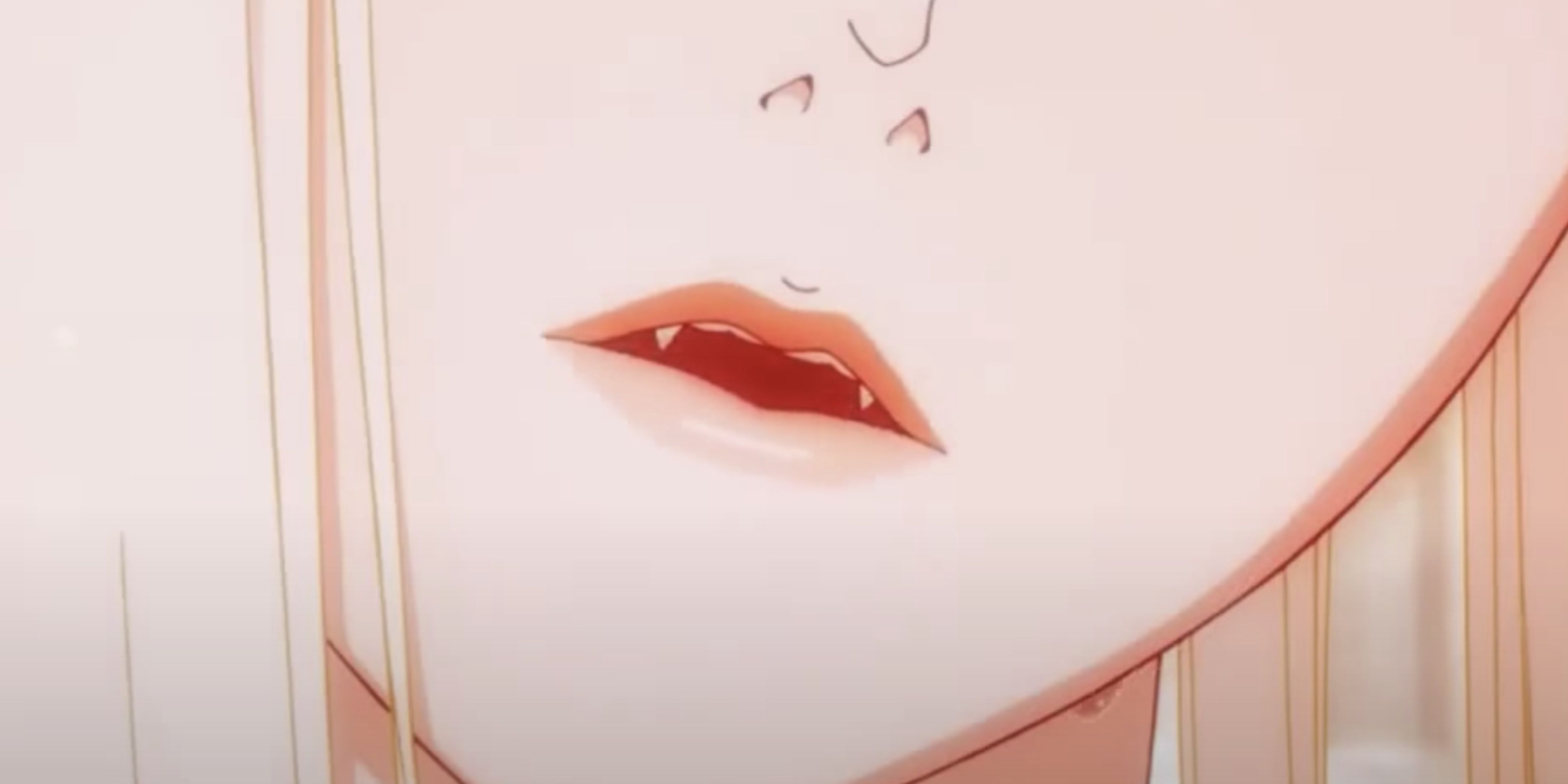
Adapting light novels into anime is tough, mainly because of budget constraints. Studios often look to successful adaptations for solutions. While shows like *Mushoku Tensei* and *Solo Leveling* rely on stunning animation quality, that’s not the only path to success, particularly for stories that aren’t action-packed. A great example of a different approach is the 2009 anime *Bakemonogatari* by Studio Shaft, which brilliantly brought a dialogue-rich light novel to life on screen.
The *Monogatari* series is delightfully strange, especially considering how it was adapted. Author Nisio Isin is famous for his unusual and quirky stories, and the original writing is often unconventional, jumping between awkwardness and beautiful, elaborate language. A standard adaptation wouldn’t have given the series the success it enjoys today. Studio Shaft truly excelled with the anime, employing a variety of creative and unusual techniques that made it stand out and become a joy to watch.
The Monogatari series relies heavily on dialogue – over 90% of it, in fact – and many scenes are simply characters having conversations. However, Studio Shaft avoids making these scenes visually dull by using a unique style: rapid cuts, unusual camera angles, and creative staging. They often mix lengthy dialogue with text-only slides or incorporate striking visuals like extreme close-ups or minimalist, monochrome backgrounds, creating a consistently interesting and unconventional viewing experience.
The *Monogatari* series proved remarkably resourceful with its limited budget. It frequently used beautiful still images, which allowed them to focus their resources on key animated scenes. Director Akiyuki Shinbo’s skill helped overcome the financial limitations, creating a visually compelling experience. Importantly, the techniques used to make the series so engaging – even with limited animation – are lessons that any adaptation can apply, regardless of budget size.
Skilled Direction And Editing Can Make Up For a Low Budget
An anime’s budget heavily influences its final look, and fans can often estimate how much a show cost just by watching an episode, no matter the type of anime. For example, someone familiar with anime could easily see that *Bocchi the Rock* and *Nichijou* had good funding for a comedy, while other funny shows might look less polished due to lower budgets. However, strong directing and editing can sometimes overcome budget limitations.
I’ve been watching *The Angel Next Door Spoils Me Rotten*, and while it has potential, I think it could have been so much better. The story mostly takes place in just a couple of locations – usually at home or school – and relies heavily on conversations and small moments between the two main characters, Mahiru and Amane. Because there isn’t much action, the anime really depended on strong visuals and voice acting to carry it. The voice actors did a fantastic job, but unfortunately, the animation quality often let things down, even in scenes that didn’t have a lot of movement.
The anime could have been far more engaging with a stronger artistic style, less reliance on animation, and a more focused creative vision. As it stands, it doesn’t really add anything new, and most fans recommend the original light novels instead, which offer a much better and more immersive experience.
Studio Trigger’s *Kill la Kill* is a prime example of how strong editing and directing can elevate an anime. While the show is full of energetic animation, it cleverly mixes those moments with simpler techniques – like stylized cut-outs or still images depicting action. Some scenes are clearly low-budget, but the skillful editing and direction create a visually engaging and surprisingly cohesive experience.
Light novel anime adaptations usually succeed for one of two reasons: a large budget, or a passionate production team. *Bocchi the Rock!* was exceptional because of the dedication of its creators, much like *Bakemonogatari* benefited from the talented team at Studio Shaft led by Akiyuki Shinbo. These series thrived thanks to the people who made them. On the other hand, anime like *Solo Leveling* rely on a significant budget and strong production values to achieve success.
Unfortunately, it doesn’t look like anime adaptations of light novels will improve significantly anytime soon, particularly with studios increasingly approving projects that have limited funding and a lack of creative investment. Still, there are plenty of successful examples that studios can learn from, showing how to create a quality anime even with a tight budget. The key is to avoid repeating the mistakes of past unsuccessful adaptations and instead focus on passion and quality.
Read More
- How to Get the Bloodfeather Set in Enshrouded
- 4 TV Shows To Watch While You Wait for Wednesday Season 3
- The Pitt Season 2, Episode 7 Recap: Abbot’s Return To PTMC Shakes Things Up
- Gold Rate Forecast
- Every Targaryen Death in Game of Thrones, House of the Dragon & AKOTSK, Ranked
- Goat 2 Release Date Estimate, News & Updates
- Best Werewolf Movies (October 2025)
- One of the Best EA Games Ever Is Now Less Than $2 for a Limited Time
- Best Controller Settings for ARC Raiders
- 10 Movies That Were Secretly Sequels
2025-10-06 23:40